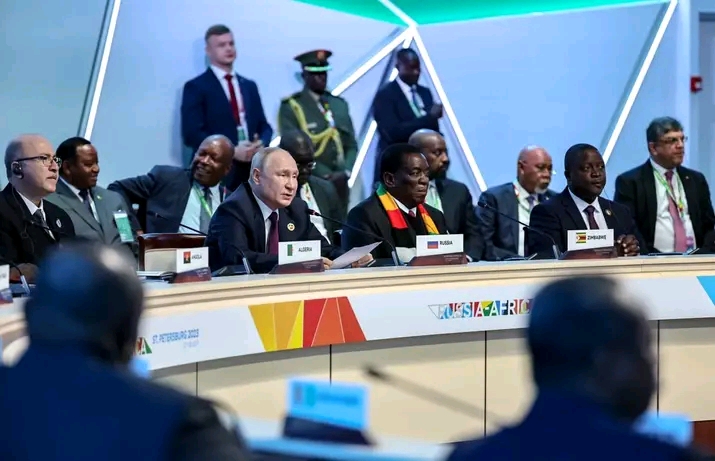By The Editor-in-chief
Russian President Vladimir Putin’s signing of military cooperation deals with over 40 African countries at the Russia-Africa summit in St. Petersburg on Friday, has sparked significant interest and debate. With the stated objective of enhancing the defense capabilities of African nations, this move has raised questions about the true beneficiaries of this collaboration and the broader implications it may have for the region.
While President Putin contends that these deals are intended to bolster the defense capacities of African nations, it is essential to critically examine the motives behind Russia’s extensive military outreach. Skeptics argue that Russia’s interest in Africa goes beyond altruistic intentions and rather represents a strategic maneuver to secure its geopolitical interests on the continent.
One key aspect that warrants scrutiny is the nature of the military equipment and technologies being offered by Russia to its African counterparts. Critics suggest that some of these deals may involve the sale or provision of outdated weaponry, potentially leading to dependence on Russian arms in the long run. This dependency could raise concerns about the sovereignty and independence of African nations in their defense affairs, as they may find themselves tied to Russian interests and policies.
Furthermore, the increasing presence of Russian military advisors and personnel in African countries under the pretext of cooperation raises questions about the potential for increased Russian influence in the region. The history of great power competition in Africa reminds us that external involvement, if not carefully managed, can exacerbate existing conflicts and create new tensions. African leaders must exercise caution to ensure that these agreements genuinely serve their nations’ best interests rather than becoming tools for foreign interference.
On the other hand, proponents of the Russia-Africa military cooperation argue that it presents African nations with an opportunity to diversify their defense partnerships. Historically, some African countries have heavily relied on arms imports from a limited set of Western countries. Expanding collaboration with Russia could potentially provide them with alternative sources of military equipment and technology, fostering healthy competition and potentially reducing costs.
Additionally, Russia’s involvement in security cooperation might pave the way for joint military exercises, training programs, and knowledge transfer, enhancing the capabilities of African armed forces. Such collaborations could be valuable in tackling regional security challenges, including counterterrorism and peacekeeping efforts, if undertaken with transparency and respect for sovereignty.
Nevertheless, as African countries engage in military cooperation with Russia, they must remain vigilant to protect their national interests and carefully assess the long-term implications of these deals. Robust oversight mechanisms should be put in place to ensure transparency, accountability, and adherence to international norms and human rights standards.
In conclusion, the Russia-Africa military cooperation undoubtedly presents opportunities for both sides. However, we must not overlook the potential risks and challenges associated with these agreements. African nations must approach these deals with a discerning eye, focusing on strengthening their defense capabilities without compromising their autonomy. The long-term success of this collaboration hinges on the ability of African leaders to negotiate from a position of strength, ensuring that these partnerships genuinely serve the welfare and progress of their nations and peoples. Only then can Africa truly benefit from this engagement while guarding against undue external influence and preserving its path to a secure and prosperous future.


